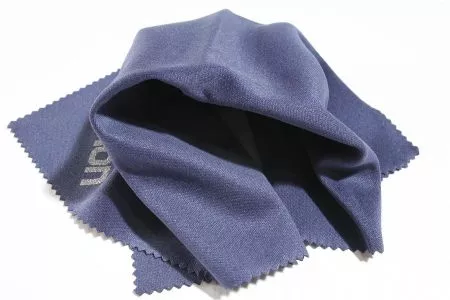Nylon is a popular fabric. Indeed, if you randomly pick three clothes from your closet, the chances are that you will pick at least one article of clothing with nylon in it. Moreover, as a synthetic fabric made from plastic, nylon is affordable yet durable. As a result, you will find nylon in most clothes you wear regularly. But what of winter clothes? Is nylon really good for winter?
Nylon is ideal for winter when worn as an outer layer as it can keep you warm and dry. Specifically, advanced nylon weaving and manufacturing techniques have made nylon a fabric ideal for all seasons. Even if nylon can’t on its own keep you warm during winter, its water-resistant property will keep you dry in snow and in the rain.
100% nylon and nylon blends are used to make different fabrics. Thus, how the nylon threads are weaved and the properties of fabrics that nylon is blended with will determine the suitability of nylon during winter. In this article, we look at the use of nylon in winter clothing and other outdoor gear. In addition, the article expounds on how nylon is one of the ideal fabrics for winter.

Can Nylon Keep You Warm During Winter?
Nylon is superb at retaining natural body heat. This is because the fabric is made with super fine plastic threads. The threads are tightly woven to ensure that nylon keeps the cold out. On the other hand, the threads are loosely woven to ensure that a nylon fabric is breathable.
Blending different nylons makes the ensuring blend of nylon retains the temperature generated by the body while at the same time limiting the outside temperature from getting to your skin. Thus, depending on how the nylon threads have been woven and the fabric that nylon is blended with, nylon can be warm. But does that mean that nylon is ideal for winter?
The idealness of nylon as a winter fabric will be determined by the type of winter in your area. For example, nylon might not be ideal if you have a dry winter without snow or rainfall. However, if you have a low of rain and snow during winter, nylon will be an excellent out layer as it will keep you warm and dry from the snow or rain.
Of course, you cannot wear a nylon garment on its own. However, nylon is the best outer layer when worn with other garments due to its durability and water-resistant properties. Moreover, nylon’s windproof property means that you will be protected from the occasional strong winds during winter.
Is Nylon A Good Insulator/ Is Nylon Warm?
Clothing insulator entails the thermal insulation offered by a specific piece of clothing.
To achieve optimum thermal insulation, one has to wear three layers of clothing.
The first layer entails a layer close to the body, mainly for hygiene reasons. This layer has to be changed regularly and is responsible for ensuring that sweat does not come into contact with the skin.
The second layer is between the first layer and the second layer. This layer is responsible for trapping air and preventing contact between the skin and the outer layer.
The third later is the outer layer. The layer is supposed to be thin and water-resistant. It thus protects the other layers from any external factors that might affect the insulation, such as wind and precipitation.
The three layers between the skin and the outer layer play a key role in insulation. Thus, the insulation will be poor when the clothing is tightly fitting.
Normally, nylon is great at retaining heat. Indeed, nylon even retains heat better than cotton or silk. Thus, as long as you ensure that your body is warm, nylon will trap the heat between your body and the fabric. However, if you are warm for long periods when wearing nylon, you might start to sweat.
As a natural body function, sweat is meant to keep you cool. However, if you sweat profusely, you might become soaked in sweat. The type of weaving of the nylon threads on your nylon clothing will determine the breathability of your fabric. When nylon threads are loose woven, the garment will have good breathability, while tightly woven nylon threads imply that the fabric has poor breathability.
The nylon cotton blend can draw any moisture from the skin and leave your skin dry when blended with cotton. However, a 100% nylon garment with tightly woven threads will trap the sweat against your body.
As an outer layer, nylon is ideal for winter since its strong water-resistant properties will ensure that your body is protected from any precipitation. Nevertheless, you should never wear nylon as one layer during winter since if you do, the fabric will make you freeze in the cold.
Properties of Nylon
Nylon is a synthetic fabric made from petroleum. Here are some of the properties of nylon that make it one of the common fabrics.
Affordable
As a synthetic fabric, nylon is mass-produced. Due to the economies of scale that come with mass production, nylon fabric is cheap.
Breathability
The weave determines the breathability of nylon fabric. For example, a fabric with tightly woven nylon threads will have low breathability, while nylon with loosely woven nylon threads will have high breathability.
Durability
As a synthetic fabric, nylon is durable as it is resistant to abrasion.
Water-Resistant
Nylon is highly resistant to water. In addition, the fabric dries in a short time and also resists mildew and UV light.
Keeps Wind Out
Tightly woven nylon threads will offer exceptional wind-breaking features. This is the reason why there are many nylon windbreaker jackets.
Retains heat in the body
Due to its poor breathability – when the nylon threads are tightly woven – nylon retains body heat by ensuring that heat does not escape through the fibers.
Thickness
Nylon differs in thickness. Some nylon fabrics are thin and lightweight, while other nylon fabrics are thick.
Where Can You Wear Nylon Clothes?
Nylon is considered a versatile fabric because different clothes made of nylon can be worn throughout the years. Indeed, when blended with either natural or synthetic fibers, the ensuing nylon blend is ideal for different seasons.
Nylon is considered a versatile fabric because different clothes made of nylon can be worn throughout the years. Indeed,
when blended with either natural or synthetic fibers, the ensuing nylon blend is ideal for different seasons.
When blended with cotton and other fabrics with high breathability and absorption, nylon cotton blends make the perfect spring and summer clothing. Due to its affordability, nylon is blended with other fabrics to make different garments. For example, nylon is blended with spandex to ensure that fitness fanatics are comfortable when working out.
Nylon also balances the winter wardrobe. Since different weaves of nylon are used to make nylon clothing, clothes made from tightly woven nylon threads are ideal for winter, while clothes made from loosely woven nylon threads are ideal for summer. However, except for nylon underwear, nylon clothing is mainly outer layers.
Cold-Weather Clothing Made Of Nylon
Nylon, polyester, wool, and cotton are some of the fabrics common in cold-weather clothing. In most cases, nylon is layered with other fabrics such as wool or cotton. However, nylon is usually the outer layer due to its water-resistant properties that ensure that you are kept dry when it rains.
Some of the cold-weather clothing made of nylon are:
– Nylon windbreakers
– Fleece-lined nylon leggings
– Nylon activewear
– Nylon hoodies and sweatshirts
– Nylon raincoats
When nylon is blended or lined with other fabrics, it is suitable for cold weather. Nylon’s windbreaking property, ability to resist water, and trap heat inside the body make it an ideal winter fabric when blended or lined with other complementing fabrics.
Is Nylon Jacket Good For Winter
A good winter jacket needs to be thick, retain heat, and have good breathability to keep you cool even when the body temperature gets hot. Moreover, the jacket should also be able to shield you from snow and rainfall.
A 100% nylon jacket is not ideal for winter since the jacket cannot retain the heat when the temperatures are low. However, the ideal winter jacket has its outer shell lined with nylon so that nylon offers you much-needed protection from rain, snow, and wind during winter.
Conclusions
Nylon is used to make comfortable clothes with a soft feel. The fabric is cheap, durable, and resistant to water; hence it is loved for wet and rainy conditions. Nevertheless, when buying nylon clothing, you should consider the tightness of the nylon weave.
Garments made with loosely woven nylon threads are ideal for summer as they are highly breathable. On the other hand, garments made with tightly woven nylon threads are less breathable and suitable for winter.






